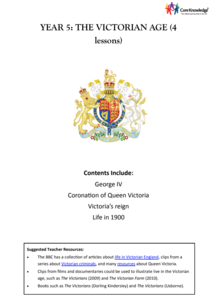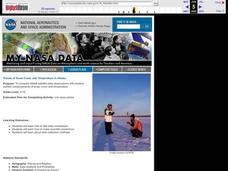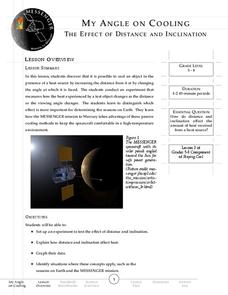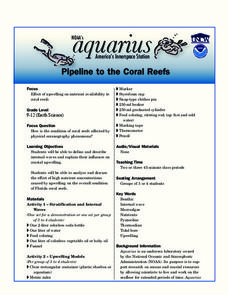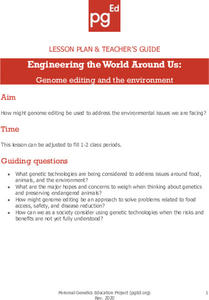Teach Engineering
Energy Systems
Is electricity created in the outlet? Using posters of several energy systems, collaborative groups identify and describe the parts of their systems. The groups also look at the environmental impacts of the systems and present...
Curated OER
Light 3: All Those Seeing Color, Say Eye!
Students explore the nature of light. They use on-line articles and a worksheet to explore the roles of the eye and brain in the perception of color. They draw and label a diagram illustrating the movement of light.
Teach Engineering
Household Energy Audit
Do you have an energy hog in your home? Individuals pick at least one room at home to determine the amount of energy the appliances consume. Using that information, pupils fill out a worksheet to determine the cost of running each...
Teach Engineering
Design Inspired by Nature
Let nature guide your engineering designs. By taking apart a flower, pupils learn about reverse engineering. They use the results to brainstorm designs for new products or ideas. This is the seventh installment of a nine-part Life...
Teach Engineering
Quantum Dots and the Harkess Method
The Fantastic Voyage is becoming close to reality. The class reads an article on the use of nanotechnology in the medical field and participate in a discussion about what they read. The discussion method helps class members become more...
Global Oneness Project
The Consciousness of Nature
Scholars voice their opinions about animal consciousness with an article that challenges common ideas about nature. After reading the article, learners engage in a thoughtful discussion before writing out their arguments...
Curated OER
How to Make a Wind Vane
Students measure the direction of the wind. In this Science lesson plan, students make their own wind vane. Students discuss the importance of wind direction and speed.
Teach Engineering
Linear Regression of BMD Scanners
Objects may be more linear than they appear. Scholars investigate the relationship between the number of bone mineral density scanners in the US and time. Once they take the natural logarithm of the number of scanners, a linear...
Core Knowledge Foundation
The Victorian Age
The length of Queen Victoria's reign, surpassed only by Queen Elizabeth II in the modern era, stretched through much of the 19th century and into the 20th century. Explore the many social, industrial, and political shifts that occurred...
Curated OER
Words In the News Big Rise in CO2
Middle schoolers complete vocabulary and word work activities including an online quiz. They read an online article while focusing on answering specific information questions. They discuss ways to improve the environment and present them...
Curated OER
Trends of Snow Cover and Temperature in Alaska
Students gather historical snow cover and temperature data from the MY NASA DATA Web site. They compare this data to data gathered using ground measurements from the ALISON Web site for Shageluk Lake. They graph both sets of data and...
Virginia Department of Education
DNA Structure, Nucleic Acids, and Proteins
What is in that double helix? Explain intricate concepts with a variety of creative activities in a lesson that incorporates multiple steps to cover DNA structure, nucleic acids, and proteins. Pupils explore the history of DNA structure,...
Messenger Education
My Angle on Cooling—Effect of Distance and Inclination
When exploring Mars, spacecrafts are exposed to 5-11 times more sunlight than when near Earth. Groups of pupils complete a hands-on activity to explore how distance and angle of the sun affect temperature. Through discussions, they then...
University of Georgia
Using Freezing-Point Depression to Find Molecular Weight
Explore the mathematical relationship between a solvent and solute. Learners use technology to measure the cooling patterns of a solvent with varying concentrations of solute. Through an analysis of the data, pupils realize that the...
Teach Engineering
Air Pressure
Investigate what is pushing on us. An intriguing lesson plan has pupils calculate the amount of force on various squares due to air pressure. Using the data, individuals create a graph in the third lesson plan of the Up, Up and Away unit...
Center for Learning in Action
Challenge with Solids, Liquids, and Gases
There's a container for every matter—liquid, solid, and gas. Pupils design three different containers, each with the capability to hold one of the states of matter, and share their design with the class.
Florida International University
Pipeline to the Coral Reefs
Discover firsthand the effects of internal waves on coral reefs. Through a series of experiments, learners simulate internal waves and upwelling events as they make observations on the movement of water and other debris. They then...
Curated OER
Science NetLinks: Hollywood Dinosaurs
Students use relevant evidence and logical reasoning to construct theories for dinosaur behavior. They examine recent evidence that challenges a prevailing dinosaur theory.
Teach Engineering
Bend That Bar
Bend it, but don't break it. Groups investigate the strength of different materials. Using a procedure in the seventh segment of a 22-part series on aviation, pupils determine how far a rod will bend. They determine the strength-to-mass...
Personal Genetics Education Project
Engineering the World Around Us: Genome Editing and the Environment
Challenge young minds to build a better world with genetic engineering. Biologists learn potential solutions for environmental issues using genome editing while interacting with three case studies. Scholars read articles and view...
University of Colorado
Enceladus, I Barely Knew You
Use spectral knowledge to make discoveries on a distant moon. Small groups gather information from images of one of Saturn's moons. The moon orbits within the E-ring made up of mainly water ice. Using information about the composition of...
Virginia Department of Education
Acids and Bases
What did one titration say to the other titration? We should meet at the end point! Young chemists perform four experiments: dilute solution, neutralization, titration, and figuring pH/pOH.
Center for Learning in Action
Introducing Physical and Chemical Changes
Young scientists investigate chemical and physical changes to the states of matter—gas, liquid, and solid—as well as solutions and suspensions with a variety of demonstrations, grand conversation, and an interactive quiz to check for...
Space Race
Sensory Detectives
Test your learners' sensory awareness with three hands-on activities that ask pupils to use their other senses to identify and describe everyday objects hidden from sight.








